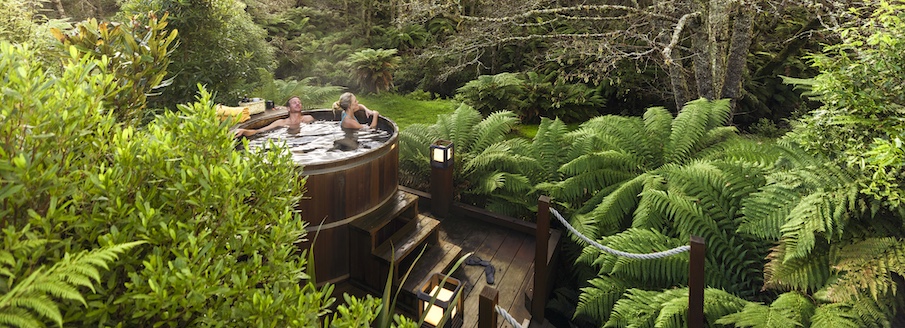10 Trending Marketing Strategies for Tourism in 2024
By Michelle Ackers on

The travel bug is buzzing again, and 2024 promises to be a year of exciting growth for the tourism industry. With a landscape reshaped by the pandemic and evolving traveller preferences, it's crucial for businesses to stay ahead of the curve. The increasing use of AI-powered tools is driving more personalised content creation, effective data tracking, and better understanding of your customer journey. Embracing digital technologies will be integral to businesses of all sizes to take advantage of the continuing growth of tourism.
Let’s explore 10 trending strategies we’ve identified that could shape marketing in 2024!
1. You will use more AI
During 2023 we saw the rise of AI in our daily lives as well as in marketing. In 2024 we expect to see the application of AI accelerate even more as people see the benefits, manage the flaws, and implement what they believe works for them. If you look after the marketing for your business, we recommend you take leadership in learning how AI can assist you - think of it as valuable technology to support your marketing rather than replacing your job! We will continue to share resources and guides on how AI can help tourism businesses, watch this space!
2. Short-Form Video Reigns Supreme
Attention spans are shrinking so forget feature-length epics, short-form video platforms like TikTok and Instagram Reels continue to rule the roost, and on the rise is YouTube Shorts. Create captivating snippets of your destination, activities, and local charm. This is a fast-paced form of media and popular trends are ever-changing - the only way to keep up with it is to be immersed on these platforms! Read our “How to TikTok for Tourism” guide to learn more about this platform.

3. Chatbots Become Conversational Companions
AI-powered chatbots offer human-like 24/7 assistance, answer FAQs, and personalise recommendations to the user. Implement an AI chatbot on your website to provide seamless support and enhance the guest experience right from their first point of contact. We believe this type of tool will be an effective way to create more direct bookings for tourism businesses by answering questions at the right moment in time. You can learn more about AI Chatbots developed for tourism by Yonder.
4. Watch out for Googles Search Generative Experience (SGE)
Still in its experimental phase and using AI technology, SGE provides highly personalised contextual answers to Google search queries. It could significantly change SEO and how your website content should be written and structured to be featured in search results. This is something we will keep on our radar!
5. Micro-Moment Marketing
A micro-moment strategy creates quick, relevant interactions with potential customers at the right moment in time when they are searching online for answers. For tourism this is the “I want to go” and “I want to do” moments. Using real-time data and AI-powered tools you can understand more about your audience, map their booking journey, and use data to create content on your website and social media that captures potential customers by answering their questions at the right moment in time.
6. User Experience (UX) as a Ranking Factor
Google's algorithms are becoming more attuned to user experience. Prioritise website speed, mobile optimisation, and seamless navigation to ensure your tourism business remains at the top of search engine results. An SEO website audit is the first step in identifying technical issues that may be slowing it down, and a UX audit will provide valuable recommendations to improve the user experience and navigation.

7. Hyper-Personalisation Takes Center Stage
Travellers crave experiences tailored to their unique interests and values. Leverage AI and data from website traffic (like custom reports in GA4), social media engagement, and booking patterns to understand your target audience. Use this information and AI tools to personalise paid ad campaigns, website content, recommendations, and offers.
8. Social Commerce Surge
The fusion of social media and e-commerce is reaching new heights. Platforms are evolving into virtual marketplaces, making it imperative for your tourism business to explore seamless social commerce integration. From inspirational posts to direct bookings, the journey begins on social media.
9. Rise of Social Audio
Social audio platforms continue to gain popularity, offering unique opportunities for engagement. Consider incorporating audio content, whether it's travel stories, podcasts, or interactive discussions, to connect with your audience in an immersive way.

10. Video Advertising is Growing
Video continues to dominate the advertising landscape, not surprising given the popularity of short-form video! Invest in video ads across platforms like Google/YouTube and social media to capture the visual attention of your audience and convey your tourism offerings in the best possible medium.
By embracing these trends and staying agile, your tourism business can navigate the ever-evolving landscape in 2024 and attract new bookings time and time again. Remember, the key lies in personalisation, and using digital marketing to create meaningful connections. If you need any assistance with your strategies and campaigns get in touch with our team!
ABOUT THE AUTHOR
Michelle Ackers | Brand Marketing Manager
Read more articles
5 Ways to Attract the 'Slow Travel' Market
By Tomahawk |

Peoples lives are increasingly hectic and non-stop, and as a result more travellers are seeking experiences that allow them to slow down, connect deeply with a destination, and travel with greater intention. This is now being...
From Likes to Bookings: 5 Social Media Must-Haves for Tourism Businesses
By Tomahawk |
.png)
Social media is your passport to the world. If you’re in the tourism business, you’re sitting on a goldmine of opportunities to connect, inspire, and engage with future travellers. But here’s the thing – it’s not about being on...
